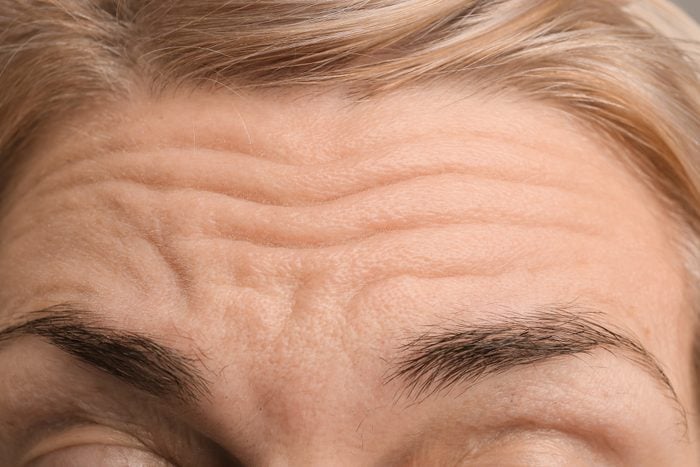
You may be a greater risk for heart disease
Deep forehead wrinkles might be an early indicator of atherosclerosis, the hardening of the arteries that can lead to heart disease, according to a new study. Scientists who followed more than 3,000 health adults ages 32 to 62 for 20 years found that people with deep forehead wrinkles were ten times more likely to die from heart disease than people without wrinkles. What’s the connection? Both forehead wrinkles and atherosclerosis are associated with stress, researchers told Medical News Today. The scientists also noted that blood vessels in the forehead are finer than in other parts of the body, so they may reflect the build-up of plaque that causes atherosclerosis in the arteries more clearly.
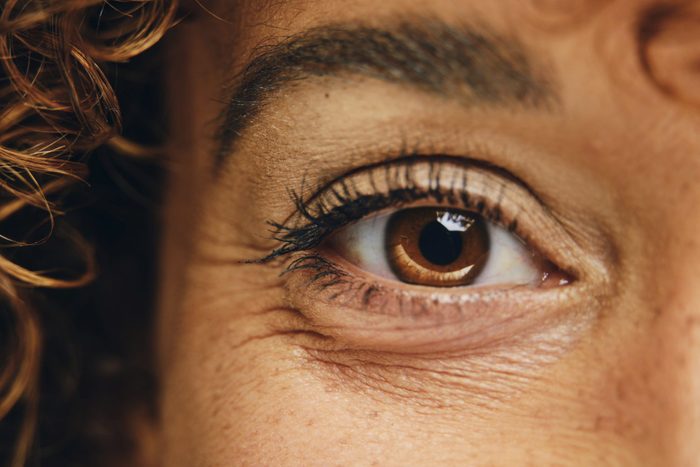
You might also have high blood pressure
Women who looked younger than their years tended to have less facial sagging and lower blood pressure, according to a 2013 study. That’s likely a combination of two things: The younger-looking women have a healthier vascular system and they protect their skin, says Omer Ibrahim, MD, FAAD, a dermatologist based in Chicago and a spokesperson for the American Academy of Dermatology. “What I’ve seen in my practice is that people who take good care of their skin tend to nurture their bodies as well,” Ibrahim says.
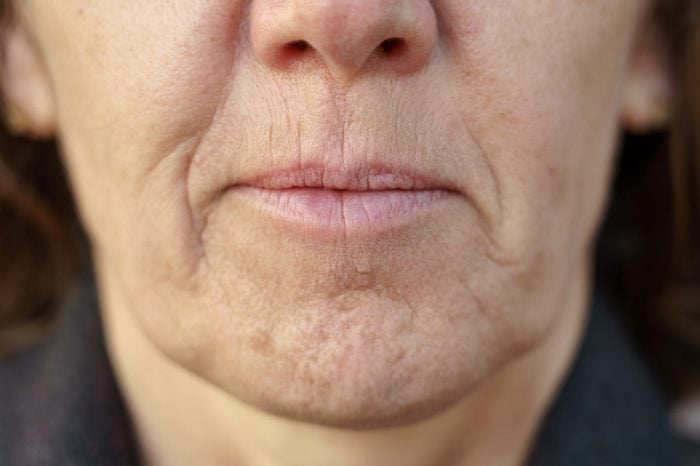
You might not be living a healthy lifestyle
Lines on your face may also be an indication that you’re not living a healthy life overall. Research has shown that people with sun damage and wrinkles are more likely to engage in high-risk activities such as eating poorly, not exercising enough, and not protecting themselves from the sun. “It’s just a sign that they’re not healthy in general,” Ibrahim says.
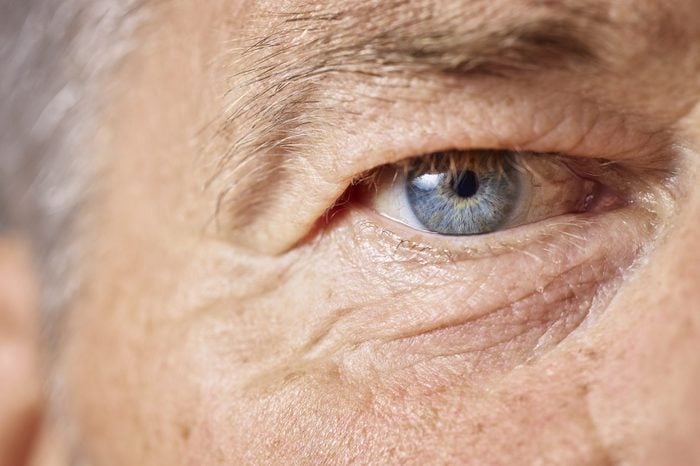
Your bones might be weaker
Your wrinkles could also predict your risk of osteoporosis. Researchers from Yale University studied wrinkles on the face and neck and the bone density of 114 women in their 40s and 50s. “We found that deepening and worsening skin wrinkles are related to lower bone density among the study participants,” Lubna Pal, an associate professor in the Department of Obstetrics, Gynecology, and Reproductive Science at the Yale School of Medicine, wrote in a news release. The reason researchers think there’s a connection is because skin and bone both depend on collagen, a protein whose production decreases with age. Lower levels of collagen could be both genetic and a result of lifestyle factors, Ibrahim says. Here are the everyday habits that cause wrinkles, too.
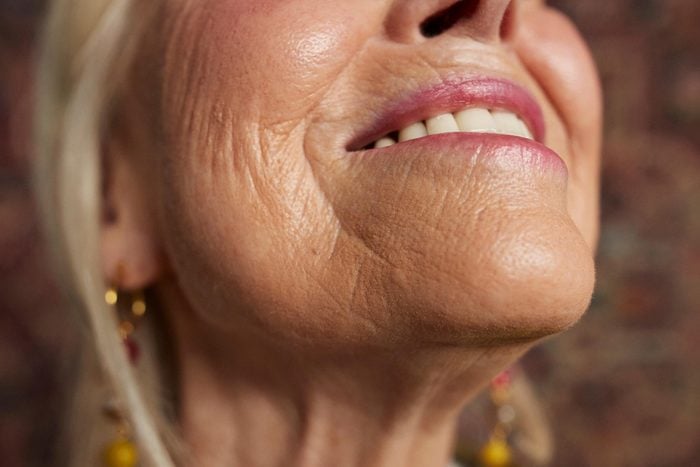
You may be at increased risk for skin cancer
“People always think if they don’t see those sun spots, they haven’t gotten sun damage,” says Dee Anna Glaser, MD, a dermatologist based in St. Louis, MO, and a spokesperson for the American Academy of Dermatology. But fine, crepe-y looking wrinkles on your cheeks could indicate you’re at increased risk for skin cancer. Studies have shown that people get wrinkles on the left side of their face because they’re exposed to ultraviolet rays through the car window as they drive, she says.
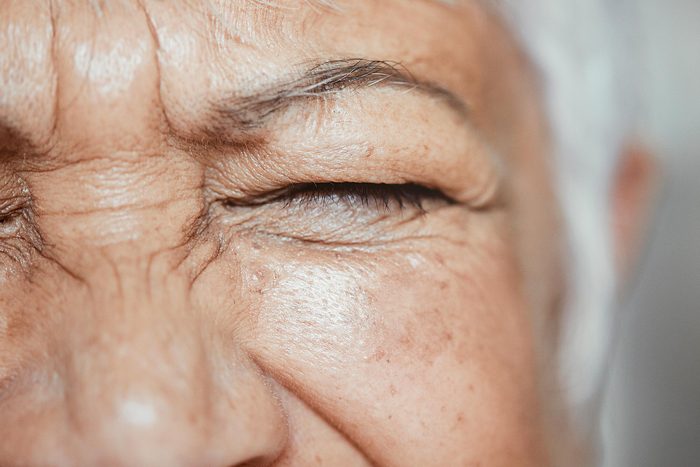
You’re stressed out
Some people are very animated and use lots of muscles in their face when they smile, which can also lead to wrinkles. But forehead wrinkles and lines between the eyebrows could also be a sign that you’re under stress, Glaser says. And stress can increase levels of cortisol, which can lead to increased risk of obesity, high blood pressure, and diabetes, Ibrahim says. Don’t miss these foods that help prevent wrinkles.
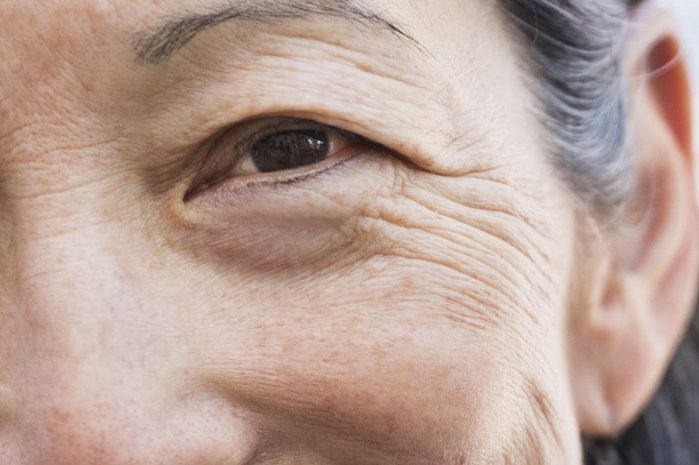
You’re spending too much time looking at your devices
That said, more and more younger people are coming to dermatologists with lines between their eyebrows, Ibrahim and Glaser say. “Nowadays I think we’re seeing more of those lines from just focusing on all of our many devices,” Glaser says. Next, these are the 50 things that are making you look older.